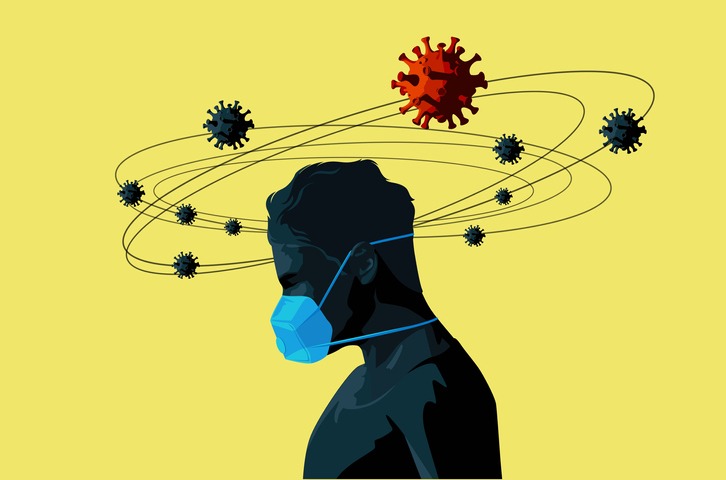
Practice leaders know better than most the impact COVID has had on their practice team, in this article, medical professionals grappling with long COVID open up about their journeys and advocate for stronger support systems to combat the lingering effects of the virus.
CREDIT: This is an edited version of an article that originally appeared on Medscape
Doctors whose lives were shattered by long COVID contracted while serving their roles have voiced their plea for more comprehensive support from the Government and the NHS. These healthcare heroes have confronted immense hurdles, both physically and emotionally, as they grapple with the aftermath of the virus.
Inadequate NHS support
One hospital doctor, incapacitated for nearly three years due to long COVID, revealed the absence of sufficient support and care from the NHS. Another GP partner, compelled to switch to part-time work after falling ill, called for improved access to occupational health services and flexible sick pay, highlighting the pressing need for better assistance.
Their concerns align with a report by The BMJ, which delves into the experiences of numerous doctors who have been rendered incapable of working and now face financial adversity after contracting SARS-CoV-2 and developing long COVID.
Stories of struggle
Dr. Kelly Fearnley, 37, contracted COVID-19 in 2020 during her foundation training. She became severely ill, unable to work since then and now resides with her father. Dr. Fearnley’s gruelling experience saw her surrounded by infectious patients for extended periods, leading to a profound exposure to the virus. This ordeal forced her to surrender her provisional registration as a doctor. In 2022, she co-founded Long Covid Doctors for Action (LCD4A), advocating for greater recognition of long COVID’s impact on doctors’ health and careers.
Dr. Asad Khan, 47, previously worked as a respiratory consultant in Manchester before succumbing to long COVID. His inability to work dates back to November 2020. Dr. Khan’s journey was marked by extreme debilitation, making even basic functions like eating or drinking unbearable. A slew of diagnoses followed, including multiple blood clots, mast cell activation syndrome (MCAS), postural orthostatic tachycardia syndrome (POTS), post-traumatic stress disorder (PTSD), and pre-diabetes. Dr. Khan’s post-COVID symptoms encompassed chest pain, urticaria, cognitive impairment, and debilitating fatigue. His transformation from a terminal state has brought some improvement, yet challenges persist, with chest pain and rapid heart rates limiting his mobility.
The NHS conundrum
Dr. Khan’s experience highlighted a lack of support and care within the NHS. His journey oscillated between empathetic colleagues striving to provide conventional support and moments of disbelief, gaslighting, and minimization. The absence of comprehensive guidance for doctors exacerbates these challenges, with existing NICE guidance falling short in offering specific recommendations for low-risk treatments to alleviate symptoms.
The pervasive nature of long COVID
Long COVID, also known as post-COVID syndrome, encompasses a wide array of persistent symptoms, ranging from fatigue and respiratory issues to heart palpitations and joint pain. These symptoms manifest during or after a COVID-19 infection and persist for over 12 weeks without explanation by alternative diagnoses.
Addressing the crisis
While official statistics regarding long COVID in the UK are unavailable, estimates from the Office for National Statistics in March 2023 suggest that approximately 1.9 million individuals are living with the condition. Healthcare workers have not been immune to its impact, with self-reported cases among healthcare and social care workers numbering 122,000 and 31,000, respectively, according to ONS figures from May 2021.
Doctors demand support
In response to the crisis, the BMA and LCD4A have jointly proposed a series of recommendations to aid those affected. These include classifying long COVID as an occupational disease, providing financial support, enhancing access to physical and mental health services, and bolstering workplace protection and support for return-to-work programs.
A plea for action
Doctors affected by long COVID emphasize the importance of comprehensive support, including access to occupational health services, flexible sick pay, and understanding from colleagues. The focus must shift towards preventing more healthcare professionals from succumbing to the condition, reinforcing the seriousness of COVID-19 and its profound, often misunderstood, consequences.
In the words of Dr. Khan, who now champions a more empathetic approach to his profession, “My aim, when I hopefully return to work, is to be a physician who will listen to patients with conditions that have been misunderstood. I have been there.”


Be the first to comment